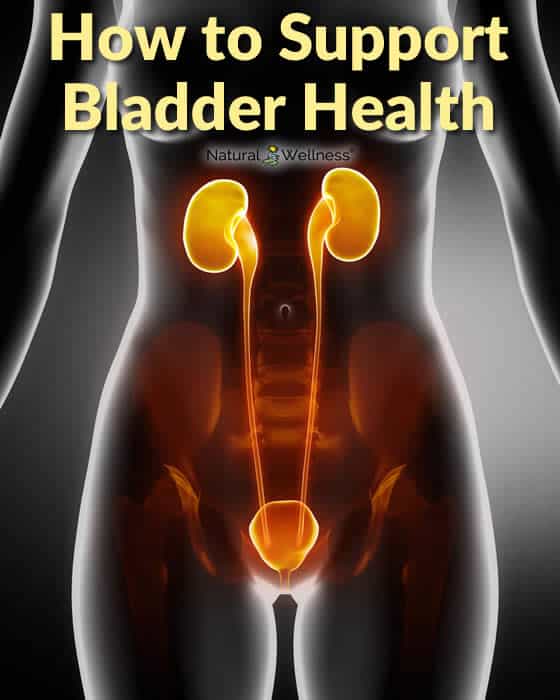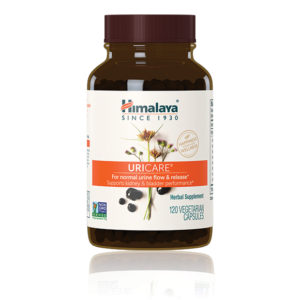

A topic that isn’t very commonly discussed is bladder health, and it obviously impacts all of us. The National Institute on Aging (1) states that every day, adults pass about 1.5 quarts of urine through the bladder and out of the body.
As we get older our bladder changes, but bladder issues or medical problems can occur at any point in our life. Some we can control and others we can’t, but what we can do is implement preventative measures and healthy habits to keep our bladder happy.
What is good for bladder health?
Different lifestyle modifications and behavior therapies can help to overcome the discomfort of bladder problems. Mayo Clinic (2) states that certain medications, excess weight, and physical inactivity are contributing factors to bladder issues.
They recommend:
- Managing medications – Have a chat with your doctor about drugs that may be contributing to bladder control problems.
- Maintain a healthy weight – Excess weight can put pressure on your abdomen and your bladder; therefore, weight loss can help to reduce that strain.
- Stop smoking – Smoking comes along with many negative side effects and can also cause more severe symptoms when it comes to bladder issues. Smokers also tend to have a chronic cough which can aggravate an overactive bladder.
- Incorporate physical activity – Even low activity such as walking, biking, or swimming 30 minutes most days of the week can improve bladder control.
- Prevent constipation – If you’re straining during bowel movements frequently, you can actually damage your pelvic floor which can lead to bladder control issues.
If you’re dealing with bladder infections, staying hydrated is important. A 2018 study (3) found that women who added 1.5 liters of water daily in addition to their regular intake of fluids were less likely to get a UTI (urinary tract infection).
It’s important to note that if you’re in physical pain (from a urinary tract infection or other kind of bladder infection) – see a doctor right away.
What foods soothe the bladder?
Along with other lifestyle modifications, eating or drinking certain foods and beverages can make a difference with your bladder habits. Cleveland Clinic (4) describes how our bladder collects the remaining waste that comes from what we eat and drink, and many of those choices can irritate our bladder. These irritants can make bladder conditions worse.
Some common foods include:
- Alcoholic beverages
- Carbonated drinks
- Spicy foods
- Acidic fruits (oranges, grapefruits, lemons, limes, and fruit juices)
- Coffee and tea (even without caffeine)
- Tomato-based products
- Chocolate
Cleveland Clinic continues to add that some people may show more irritation to said foods compared to others, which is why process of elimination is the best way to identify what is affecting you personally.
To do this, they recommend:
- Keep a food diary to track what foods seem irritating to your bladder.
- Remove the foods from your diet completely for a few days.
- Once symptoms subside, start to add those foods back in. Start with a small portion of one food and increase the amount over several days. If irritation returns after reintroduction, stop eating the food completely.
There are also food options that will benefit your bladder.

The Urology Care Foundation (5) lists 10 foods that are bladder friendly:
- Pears
- Bananas
- Green beans
- Winter squash
- Potatoes
- Lean protein (low-fat beef, chicken, pork, turkey, and fish)
- Whole grains (quinoa, rice, and oats)
- Breads
- Nuts
- Eggs
How do you cleanse your bladder?
Certain supplements can provide herbal support to your urinary tract, helping bladder performance and keeping things functioning normally and healthy. Natural Wellness carries UriCare, which contains a blend of herbs that effectively support kidney and bladder performance.
This blend contains the following key ingredients:
- Didymocarpus – Kidney stones are hard deposits made up of various minerals and salts which is formed in your kidneys. These stones can affect any part of your urinary tract, including your bladder. (6) A 2016 systematic review (7) found that didymocarpus combined with other herbal agents helped induce total clearance and reduced the size of kidney stones in participants.
- Saxifraga Ligulata – This is another herb that has been recognized as plant that helps dissolve kidney stones, according to a 2013 article (8). The name itself is Latin for “stone breaker.” Beyond that role, it also can be used as an anti-bacterial, anti-viral, anti-inflammatory, and antioxidant.
- Prickly Chaff Flower – According to a 2018 review published in the International Journal of Chemical and Biochemical Sciences (9) chaff flower has been used in various medicinal ways for thousands of years. That’s because the essential oil that is extracted from the leaves possess anti-cancer, anti-microbial, diuretic, hepatoprotective, antioxidant, and anti-inflammatory properties.
- Indian Madder – This herb was used in traditional European medicine for inflammation of the urinary tract and has strong antioxidant properties. It also helps to prevent and manage kidney stones, according to a 2018 review (10).
What are common bladder problems?
There are many conditions that can affect your bladder.
Medline Plus (11) states that most common ones include:
- Cystitis – inflammation of bladder typically caused by infection
- Urinary incontinence – loss of bladder control
- Overactive bladder – frequent urination or leaking urine
- Interstitial cystitis – discomfort or pain in the bladder that creates a need to urinate urgently and frequently
- Bladder cancer
Urinary tract infections most commonly affect women, but men are also susceptible. Mayo Clinic (12) states that many women experience more than one bladder infection in their lifetime.
Risk factors specific to women for UTIs include:
- Female anatomy (shorter urethra compared to men)
- New sexual partners and sexual activity
- Certain types of birth control
- Menopause
Increased risk of bladder infection in men is linked to (13):
- Enlarged prostate
- Kidney stones
- Diabetes
- Narrowing of the urethra
- Procedure where instrument is inserted in the urethra, such as urinary catheter
Conclusion
Today we covered all you need to know about supporting the health of your bladder, including particular lifestyle modifications, foods to eat as well as foods to avoid, and health supplements.





